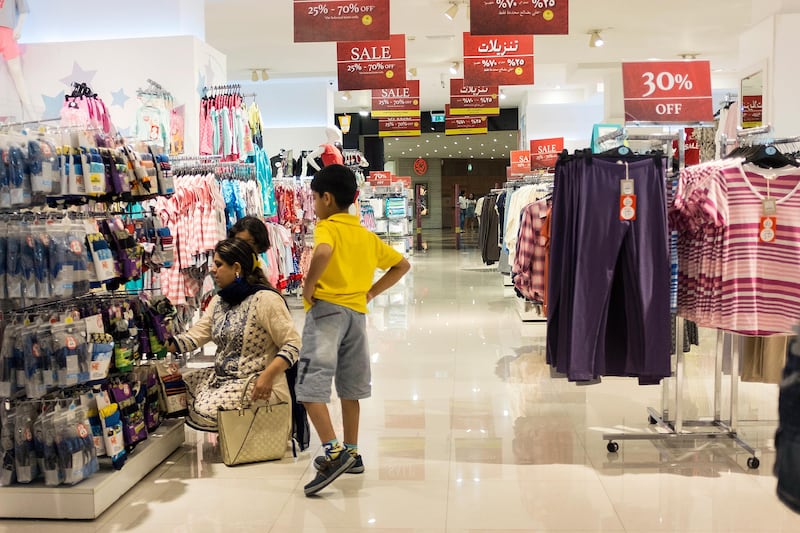Dubai plans to create a Dh2.7 billion e-commerce free zone close to Dubai International Airport to tap the Arabian Gulf region’s e-commerce market, which is forecast to quadruple to US$20bn by 2020.
Dubai CommerCity, a joint venture between Dubai Airport Freezone Authority (Dafza) and wasl Asset Management Group, will stretch over a 2.1 million square feet area in Umm Ramool, Dafza said.
Wasl manages the Dubai government’s property assets.
“Dubai CommerCity will enhance the role of e-commerce as a key driver of Dubai’s sustainable economy,” said Mohammed Al Zarooni, director general of Dafza. “Dubai CommerCity complements the expansion plans and achievements led by Dafza aimed at attracting foreign direct investments to Dubai.”
______________
Read more:
[ Payfort says online payments in the Middle East grew 22 per cent last year ]
[ Online retail is shifting from a desktop model to being mobile-first ]
______________
The Gulf's e-commerce market is forecast to grow fourfold to US$20bn by 2020 from $5.3bn in 2015, when it contributed 0.4 per cent to the region's GDP, according to consultancy A T Kearney.
The region’s e-commerce market is forecast to grow at a compound annual growth rate (CAGR) of 30 per cent by 2020, outpacing the 9 per cent CAGR of traditional retail, thanks to more awareness of online offerings, higher online conversions and more retailers providing e-commerce solutions.
"Our joint venture supports the national economic diversification strategy and the creation of a sustainable economy based on innovation and competitiveness," said Hesham Al Qassim, chief executive of wasl. "The new free zone is located near Dubai International Airport, one of the busiest airports in the world, offering attractive investment opportunities to reputed e-commerce companies that are seeking to establish a presence and expand in the Mena and South Asia regions."
Over the next five years, the UAE e-commerce sector is forecast to represent 10 per cent of the Dubai's retail sales, which are projected to reach Dh200bn by the end of 2017, Dafza said.
The free zone will be built in two phases and will include three clusters: a business area with a total built-up area of 136,000 square metres featuring offices; a logistics cluster with a total built-up area of 71,000 sq m to meet the needs of logistics services providers and customers, and a social area that includes art galleries, restaurants and cafes and other facilities.
The e-commerce sector has been rapidly growing in the UAE thanks to the country’s affluent and digitally savvy population, as well as the adoption of technology.
Mergers and acquisitions in the industry have picked up pace over the past year.
Noon, a $1bn joint venture between Saudi Arabia’s sovereign wealth fund Public Investment Fund and a group of Gulf investors led by UAE billionaire businessman Mohamed Alabbar, was launched last month in the UAE and is expected to begin operations in Saudi Arabia before the end of this year.
Its launch comes on the heels of several acquisitions in the UAE’s e-commerce space.
Before Noon’s launch, Kuwaiti franchise operator M H Alshaya – which has franchises across the Mena region, Turkey and Russia, including retailers Starbucks, The Cheesecake Factory and Victoria’s Secret – bought a stake in Noon, making it the first retailer to announce a partnership with the platform.
Earlier this year, Amazon.com acquired regional e-commerce platform Souq.com for $580 million, making it the biggest foreign acquisition in a regional start-up. Emaar Malls, a unit of developer Emaar Properties – whose chairman is Mr Alabbar – acquired a $151m stake in Dubai-based online fashion retailer Namshi, wrapping up its hunt to land a significant e-commerce asset following an earlier attempt to buy Souq.com.
In May, Noon bought online marketplace JadoPado for an undisclosed price.
There is also a notable push by a number of home-grown brands to go beyond bricks-and-mortar operations that have traditionally defined the retail landscape, with a pivot to develop the online shopping industry and directly challenge Amazon.com.






